To take any type of contest you must be well informed. However, with so many subjects to study, you don't always find time to catch up on the news.
For this reason, we selected news from Brazil and the world that can be charged for any question in Enem or the entrance exam, or even as an essay theme.
News in Brazil
1. Bolsonaro government
President Jair Bolsonaro was sworn in on January 1, 2019, after a major electoral dispute.
The mandate began with the reduction of ministries, uncomfortable statements by Minister Damares and the former Minister of Education, Ricardo Vélez, who was fired.
Likewise, the president was heavily criticized when he ordered the military to "celebrate" the 1964 coup that instituted the military dictatorship in Brazil.
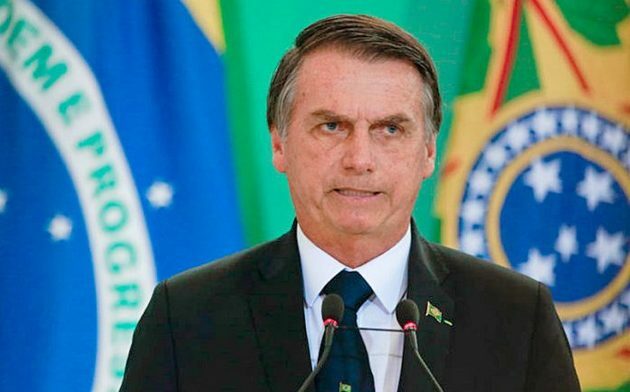
The president has been collecting controversies at the international level, such as the opening of a Brazilian office in Jerusalem and the concession of the Alcântara base to the Americans.
Internally, Bolsonaro faces some of his most delicate issues in the Social Security reform and the approval of the weapons statute, in addition to his role in combating Covid-19.
The lockdown measures adopted by governors of some states were criticized by the president. Bolsonaro claims that, by staying at home, many Brazilians will not be able to survive due to hunger.
2. education
Brazilian education gained prominence in 2019 when the government began to announce the changes for this folder.
One of the first acts was the creation of a sub-secretariat to promote the creation of military schools throughout the country. Then, the government stated that it intended to end courses in human sciences such as Philosophy and Sociology.
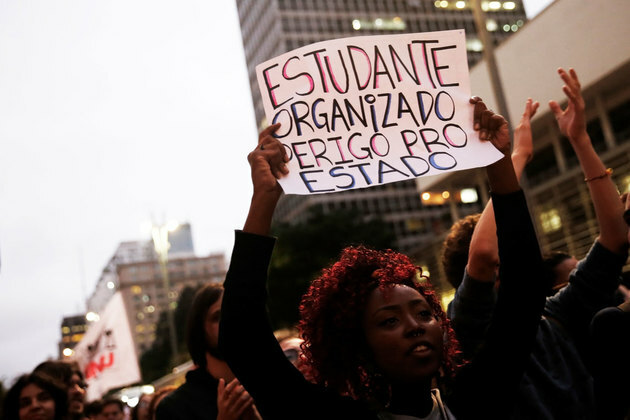
In April 2019, a bill that would regulate home education was announced. This provoked a reaction from several educators, claiming that it would harm the socialization of those children who would not attend school.
Likewise, in May 2019, the then Minister of Education, Abraham Weintraub, announced the allocation of 30% of funds from public universities. This measure triggered a series of criticisms and protests not only from university students, but from public and private schools.
The Bolsonaro government has already had two changes in minister of education. After the departure of Abraham Weintraub, almost a month later - on July 10, 2020 - Milton Ribeiro took over the portfolio and since then faces the challenges of education in the face of the Covid-19 pandemic, to which are added the smallest budget for basic education in the last years.
Announced in 2019, the first version of Enem Digital was applied on January 31 and February 7, 2021. The goal is for the test to be applied only in digital format, putting an end to astronomical expenditure on prints.
3. Vaccination against Covid-19
In early April, two and a half months after vaccination against Covid-19 began in Brazil, more than 20 million of people have already received the first dose of the vaccine in the national territory, which corresponds to about 9% of the population. São Paulo is the state that has the largest number of vaccines administered.
One of the biggest obstacles that Brazil faces is the shortage of vaccines. On that date, only CoronaVac and AstraZeneca are administered in the country, as despite the government having made agreements with suppliers of other immunization agents, deliveries are delayed.
As for the Brazilian vaccines, ButanVac and Versamune, both are expected to start being administered between late 2021 and early 2022, as testing and authorization for emergency use still takes its time.
4. Arms clearance
One of Jair Bolsonaro's great banners, during the electoral campaign, was the liberation of the possession and possession of weapons in Brazil. Claiming that the citizen has the right to exercise his personal defense, the president promised to expand this right.
In this way, the president prepared bills in order to make access to weapons easier.

Unable to gather the necessary majority to approve these bills, the president passed a series of decrees that increase the right to carry a weapon for a series of professional categories. Thus, truck drivers, lawyers, journalists covering police news and security personnel will be able to carry weapons.
Likewise, the amount of ammunition to be purchased was increased. Some models of weapons, formerly exclusive to the police and the Armed Forces, are now accessible to those who are authorized to own weapons.
In February 2021, new measures aimed at expanding the right to arms were published. Among these measures, the limit for the acquisition of weapons for restricted use by police, for example, goes from four to six weapons.
See too:gun carry
5. labor reform
On November 11, 2017, the labor reform came into effect, whose bill had been sanctioned in July by President Temer.

The main changes consider that:
- Vacations: can be split up to 3 times (before there was the possibility of being split up to 2 times);
- Working hours: up to 12 hours a day (before, 8);
- Commuting time: the time taken to get to work by those who have difficulties with means of transport due to lack of access is not counted as working hours (it used to be).
- Contribution time and age are two minimum requirements for retirement: women, 15 years of contribution and 62 years; men, 20 years of contribution and 65 years (the "contribution time" pension was abolished).
After the 2017 Labor Reform, many changes were made to the Consolidation of Labor Laws (CLT) and still generate many doubts in people.
With the pandemic, and the consequent increase in adhesion to telework and home office, it is important to verify what the law says, which contemplates these types of work.
6. Car Wash Operation
The Lava Jato operation is the biggest money laundering and embezzlement scandal in Brazilian history. With it, Brazil's international credibility fell. It involves politicians, large contractors and one of the largest oil companies in the world and also the largest state-owned company in Brazil, Petrobras.
Contractors combined the prices of the works simulating real competition. This made the organizations involved rich and, in turn, resulted in a great loss to the public coffers.
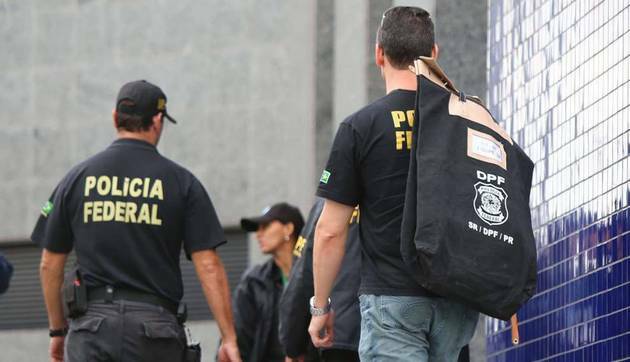
Discovered in March 2014, investigations continued into 2017, the year that the name of former president Michel Temer appears among those investigated. He was arrested on March 21, 2019, but was released days later, as judge Antônio Ivan Athié understood that his arrest was unnecessary because there was no risk of escape.
With the former president, former governor and former minister Moreira Franco also received an arrest warrant.
On February 1, 2021, the Operation Lava Jato task force came to an end. But there is still a lot of work to be done, after all, this is the largest investigation into corruption and money laundering in the country's history.
From now on, Lava Jato is the responsibility of the Special Action Group to Combat Organized Crime (Gaeco) of the Federal Public Ministry (MPF).
In March 2021, the Federal Supreme Court (STF) recognized that former judge Sérgio Moro conducted Lula's conviction in the Triplex case with partiality due to political motivation, thus determining the annulment of the decisions in the case.
See too:Car wash
7. Intolerance
Intolerance has been a constant issue when talking about the world, especially when it comes to xenophobia. It turns out that in Brazil, intolerance has greatly increased in various fields, going unnoticed by some.

Not only racial or sexual intolerance, but religious intolerance has grown in the country. As religious diversity increases, so does this type of discrimination among Brazilians.
Therefore, since 2007, there has been a day dedicated to this type of intolerance - National Day to Combat Religious Intolerance.
According to the National Human Rights Ombudsman (ONDH), the number of complaints related to religious intolerance increased - just in the first half of 2020 - by about 40%.
See too:Xenophobia
8. Economic crisis
The government managed to circumvent the global crisis as of 2008, however, it was not able to maintain the measures taken, which stimulated consumption in Brazil. This caused a great imbalance in public accounts.
Above all, the situation is aggravated by the distrust in Brazil by foreign investors, due to successive corruption scandals.
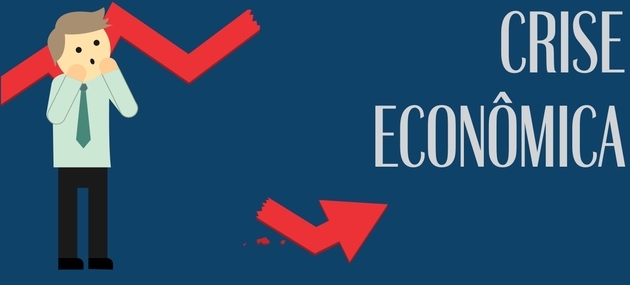
To try to save the situation, one of the government's proposals announced in 2017 is the privatization of around 57 among which Eletrobras - Centrais Elétricas Brasileiras S.A., which is headquartered in Rio de Janeiro. The package also includes the privatization of the Mint.
Congonhas, the domestic airport in the city of São Paulo, which was included in the privatization package, was removed from the list.
In 2018, the crisis continued to beset Brazil and the political crisis was added to due to the high levels of rejection by President Michel Temer. In turn, in the first months of Bolsonaro's government, the dollar continued to rise, as did the price of gasoline.
In 2020, with the emergence of the Covid-19 pandemic, the number of unemployed reached the highest rate since 2012. Furthermore, inflation has increased dramatically.
In order to reduce economic impacts, the government instituted Emergency Aid, which is a benefit for low-income Brazilians.
9. squid
After being sentenced to 9 years in prison for passive corruption and money laundering, Luiz Inácio Lula da Silva was arrested on April 7, 2018, where he remained for 580 days. However, considering that his second instance arrest was unconstitutional, Lula was released on November 8, 2019.
In March 2021, his convictions were overturned and, with that, Lula regained his political rights. In this way, the former president can run again for the presidency of the republic.
Elections take place in 2022 and the list of pre-candidates is large. Despite not confirming whether he will run for the next presidential elections, Lula has already said that his objective is to prevent Bolsonaro from being elected again.
10. Pix
In November 2020, a new payment method created by the Central Bank of Brazil, Pix, came into operation. It allows you to make transfers and pay bills instantly via your cell phone, which is as simple as sending a message.
Gradually, Brazilians are joining this new form of payment, which brings some Benefits: Pix can be used at any time of the day and money is received as soon as the transfer is done. In addition to being available 24 hours a day, it works every day - including holidays.
Using Pix is free and people no longer need to provide their bank account number. Anyone who has to send you money, for example, just has your cell phone number or your CPF number (it depends on the number you used to register with Pix). That way, if you change banks, you no longer need to tell people your new account number.
11. Rape
The increase in the number of rapes in Brazil has been under discussion. According to the Brazilian Yearbook of Public Security, around 66,000 rape incidents were recorded between 2018 and 2019, with most victims aged up to 13 years.
There is a lot of discussion around what is called the “rape culture”, which is the fact of delegating the blame for the aggression to the victim himself. Most people believe, for example, that in many situations the victim is exposed by showing clothes that arouse sensuality.

The case of the digital influencer Mariana Ferrer reflects this culture in the country, and may discourage the victims from reporting this crime. The defendant in the accusation, the influential businessman André Camargo Aranha, was acquitted because, according to the which was declared, it is not possible to prove that the sexual intercourse had not been allowed by Mariana.
12. Amazon 1
On February 28, 2021, the first Earth observation satellite was launched into space. fully developed by Brazil, the Amazonia 1, which was designed, integrated, tested and operated by the Parents. This is a milestone of success for the scientific and technological community for space missions.
The Amazonia mission, of which Amazonia 1 is a part, is to monitor deforestation in the Amazon and also in other Brazilian biomes. To do so, the satellite is capable of circling the Earth in 100 minutes and, every 5 days, it will generate images.
The launch was made from the Launch Center Satish Dhawan Space Center, in India, at 01:54 (GMT) on February 28, 2021 (Sunday).
13. Bullying
Ten years ago, on April 7, 2011, the Realengo Massacre resulted in the death of twelve students aged between 13 and 15 at a school in Rio de Janeiro. The shooter, a 23-year-old former student who had been bullied, then killed himself.
Recalling the date of this crime that shocked Brazil, the National Day to Combat Bullying and Violence at School was instituted on April 7th.
According to the International Student Assessment Program (Pisa) 2015, one in ten students is a victim of bullying in Brazil.
Bullying is psychological pressure or acts of violence suffered by peers at school. This type of attitude is mainly due to physical appearance, social class, skin color and sexual preference.

Often humiliated, students tend to be intimidated, suffering silently out of shame. This leads to demotivation and reduction in school performance. There are also many recent cases where teenagers commit suicide, which makes the matter even more important to people.
14. Social and racial quotas
The debate over quotas has been on the table since then-President Dilma Rousseff signed the quota bill.

According to the law, a percentage of vacancies in higher education must be reserved for students coming from the public network and for blacks, browns or indigenous people.
USP announced its adhesion to the system in its 2018 entrance exam.
Law No. 12,711, of August 29, 2012, which provides for quotas has ten years to be revised and, otherwise, it will lose its validity, which means that the Quotas Law is valid until 2022.
15. Fires in the Pantanal
Between September and October 2020, a large fire destroyed about 30% of the Pantanal, whose territory covers 150,000 km.2. Since it is monitored by the National Institute for Space Research (Inpe), it was the most serious year in fires.
The Pantanal is a World Heritage Site and a Biosphere Reserve and is home to a varied fauna, which is increasingly threatened by fires. In the most critical months of 2020, the number of outbreaks surpassed the 20,000 mark.
In order to prevent fires in the Pantanal, the states of Mato Grosso and Mato Grosso do Sul are studying the implementation of the "Pantanal em Alerta" program, which it consists of notifying the producers of the highest risk areas, so that preventive measures can be adopted, minimizing the impacts and problems environmental issues.
See too:Fires in the Pantanal
World news
1. Coronavirus
In November 2019, an unknown virus emerged in the Wuhan region of China. The symptoms were similar to a common flu, but the contagion was much faster and fatal for those who already had a previous respiratory illness.

The Chinese government's response to the increase in cases was to quarantine the entire city. Quickly, the world was grappling with an unknown disease that originated from a wild animal market.
From there, the Covid-19 virus spread to neighboring countries and Europe; and in March, it arrived on the American continent. In order to prevent the disease from spreading, several governments suspended classes and meetings in places that crowded a lot of people.
On March 11, 2020, the World Health Organization (WHO) classified the disease as a global pandemic due to its worldwide reach. A year later, at the beginning of April 2021, the world counts the following numbers: around 131 million confirmed cases and more than 2.5 million deaths. The most affected countries are the United States, Brazil and India.
2. Biden government
At the beginning of the Biden Administration, the new president reversed policies implemented by Donald Trump. Among the most controversial, we can mention the return to the Paris Agreement and the World Health Organization (WHO), as well as the halt in the construction of the wall on the border with Mexico.
Through the Paris Agreement - which deals with climate change as a result of atmospheric pollution - the US had made a commitment to make a reduction in the emission of pollutants until 2025 when, alleging damage to the US economy, Donald Trump decided to withdraw the country from the Agreement, which now returns with Joe Biden.
In May 2020, Trump announced the end of the relationship with the WHO. Alleging pressure from China on the organization before Covid-19, Trump decided to suspend US funding, in the order of hundreds of millions of dollars a year. In January 2021, under Biden's leadership, the US returned to supporting the WHO.
On his first day on his warrant, Biden ordered the construction of the wall on the US-Mexico border to be halted. Former President Trump had promised to build this wall, which should have been about 700 km after it was completed. At the time of the work stoppage, the wall had about 400 km.
3. North Korea
In 2016, North Korea again threatened the US with its nuclear program.
This would be the North Korean response to the sanctions imposed by the Security Council of the United Nations (UN) against the country led by Kim Jong-un.
In addition to the US, Korea is also demonstrating against Japan, an American ally.
North Korea performed its sixth nuclear test on September 3, 2017. Having been the most powerful carried out, its strength is equivalent to 16 times that of the first atomic bomb in history that destroyed the city of Hiroshima.
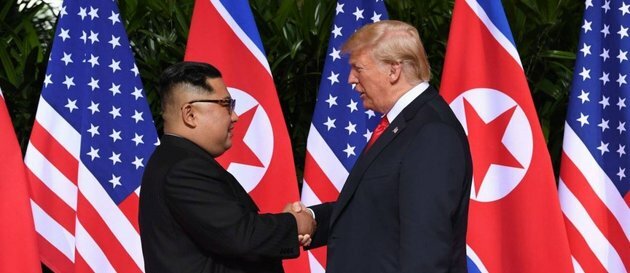
On the first day of the year 2018, the Korean leader threatens the US by announcing that the nuclear button is on his desk.
Faced with this rhetoric of war, the world rejoiced with the meeting between the president of South Korea and North Korea, on April 27, 2018. Held in the demilitarized zone between the two countries, the meeting also featured the symbolic gesture of the South Korean president stepping on North Korean soil.
President Donald Trump later met in Singapore with Kim Jong-un on June 12, 2018. Although nothing concrete was decided at this event, the meeting paved the way for diplomatic talks between the countries.
Likewise, both mandates had a meeting for February 28, 2019, in Hanoi (Vietnam). Despite the friendly atmosphere, the meeting ended earlier than expected and without any agreement between the two presidents.
In December 2019, Kim Jong-un declared that he will resume launching medium-range missiles. In March 2020, North Korea conducted a test of two projectiles with a range of 240 kilometers. In March 2021, two new tactical ballistic missiles were tested.
4. War in Syria
The War in Syria began in 2011 within the context of the "Arab Spring", whose aim was to overthrow undemocratic governments in the region. Since then, government forces have been fighting the "rebels". Taking advantage of the instability, the Islamic State took the opportunity to occupy some areas of the country, but was rejected.
The international community is watching and interfering with caution, as, unlike other countries in the region, Syria has a strong ally: Russia.
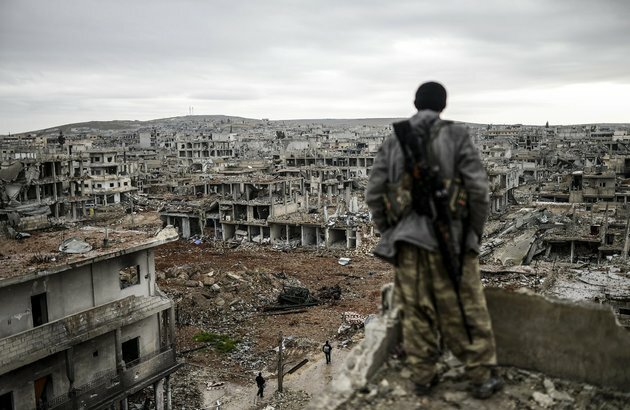
In 2017, the US attacked Syria, acting contrary to what Trump had promised. In April, the US air strike left 15 people dead in Syria after launching 59 missiles on the Syrian air base.
According to the American government, this act would have been carried out in response to the attack carried out by Syria with chemical weapons, which left dozens of people dead.
Syrian President Bashar Al-Assad denies this action, however, according to UN war crimes investigators, Syrian forces have used these weapons more than twenty times.
It is estimated that, in that year alone, the Syrian conflict caused the flight of 30,000 people. In 2018, there was an increase in bombing by Russia, allied with the government of Bashar Al-Assad.
In 2019, countries fighting the Islamic State declared that it had been defeated in Syria.
In 2021, the War in Syria completes 10 years. By December 2020, more than 380,000 people had already died in this war that has no end in sight and that was considered the worst humanitarian disaster since World War II.
5. Brexit
Brexit, word junction Britain (Britain) and exit (output), is the name used to indicate the UK's departure from the European Union (EU).
The process began in June 2016, after the referendum that expressed the willingness of the majority of Britons to leave the economic and political bloc.
The process was completed on 31 January 2020, so all treaties made with the UK were renegotiated throughout the year.
The agreement was reached on December 24, 2020. With the effective exit of the United Kingdom from the European Union, in January 2021, trade between both registered a sharp drop.
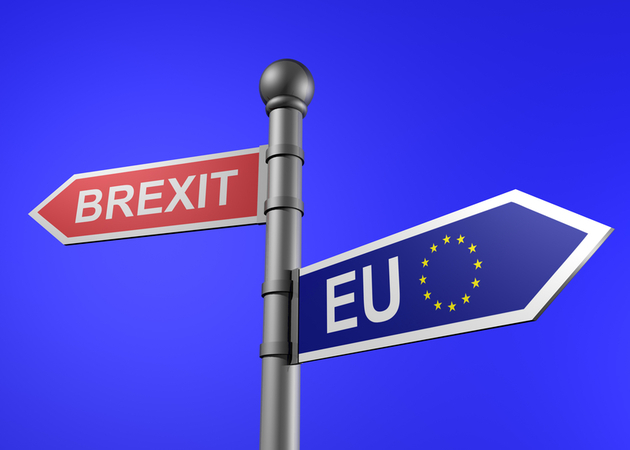
6. refugee crisis
The persecution and terror experienced in situations of extreme intolerance lead the world to experience the worst humanitarian crisis of the century, according to the UN. Refugees come mainly from African countries and the Middle East.
The War in Syria is one of the biggest situations that motivate the attempt to enter European countries, which is carried out by sea in precarious conditions.

Despite much talk about the refugee crisis in Europe, the vast majority of Syrian refugees have left for closer countries. Examples are Egypt, Iraq, Jordan, Lebanon and Turkey.
Covid-19 further aggravated the situation of refugees, given the restrictions on movement. According to the United Nations, there are more than 26 million refugees in other countries.
7. crisis in Venezuela
Venezuela is one of the largest oil producers and this is practically the only good exported in the country. Thus, with the drastic fall in oil prices, the economy sank, making the social policies established during the government of Hugo Chávez unfeasible.
As a result, inflation soared, reaching 800% per year. At the same time, wages fell and the population found itself without purchasing power.
As a result, the inhibition of consumption became so serious that most Venezuelans were unable to even buy basic necessities.
There is no food or medicine and the wave of violence is growing. In search of better living conditions, Venezuelans cross the border to Brazil, a fact that worries national security.
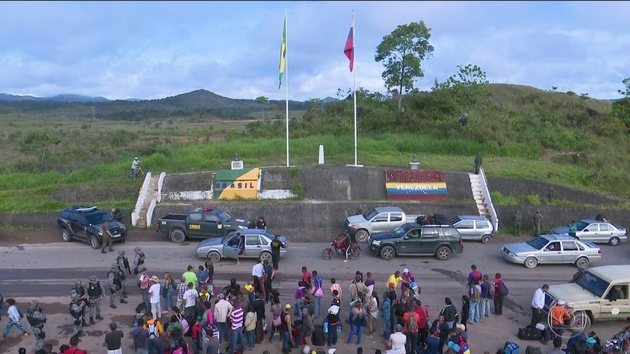
It is estimated that 50,000 Venezuelans have already crossed the Brazilian border in search of better living conditions.
To further deepen the economic crisis, President Maduro refused to swear the position before the National Assembly. Thus, lawmakers did not recognize him as president, and deputy Juan Guaidó proclaimed himself president of Venezuela.
Several countries, including Brazil, recognized him as a legitimate Head. However, Maduro and his co-religionists did not accept his authority.
In early 2021, when Guaidó's term as deputy came to an end, the European Union failed to recognize him as interim president of Venezuela.
8. Myanmar
On February 1, 2021 Myanmar was the target of a coup d'état on the day that, for the second time, a non-military government took over the country.
In elections held in November 2020, the party led by Aung San Suu Kyi - the National League for Democracy (LND) - won overwhelmingly. This would have motivated the advance of the coup by the military, who alleged that there was fraud in the elections.
LND leader and State Councilor, Aung San Suu Kyi, was arrested. She is the daughter of the man responsible for Myanmar's independence, as well as the 1991 Nobel Peace Prize winner. But despite having won this award, for her fight for human rights, Aung San's conduct Suu Kyi has been questioned as a result of violent attacks against Muslims in her government.
Myanmar gained independence in 1948, and for years lived under military rule - between 1962 and 2011. In the February 2021 coup, the army promised to stay in power for a year.
9. fake news
"Fake News" is a term coined to designate false, inaccurate, or incomplete news about a particular civil movement, political party, or person. It occurs all over the world and it spread quickly through the internet.
In a hyperconnected world, we don't always have time to reflect on what we read and so, we tend to believe everything we receive on our social networks.

The biggest example was discovered in 2018. A year earlier, the US elected its new president, Donald Trump, it was revealed that potential voters of the Republican candidate received on their social networks fake news about their opponent Hillary Clinton. In this way, these people changed their vote and thus, gave the victory to Trump.
The November 2020 American elections, which gave Joe Biden the victory, were also the target of false news. It circulated on social media that thousands of votes for Trump would have been diverted to Biden.
You must be aware of what is shared on social networks. A simple task is to suspect if the story comes without the journalist's signature. It's also worth copying some excerpts and searching for it on Google. The same happens with images that don't always portray reality.
See too:fake news
10. 2020 Olympics
The 2020 Summer Olympics in Tokyo were postponed due to the pandemic. The games are scheduled to take place between July 23 and August 8, 2021.
Although the presidency of the International Olympic Committee (IOC) has said that the coronavirus will not prevent the event from taking place, the second wave of infections in Japan is worrying.
In the first wave, Japan came to be considered a model in the way they faced Covid-19 - no lockdown, but with a lot of discipline. However, the Japanese relaxed, and by early 2021 the number of cases with severe symptoms had risen sharply, putting a strain on the Japanese health care system.
The Olympic Games of the Modern Era is a sporting event that takes place every four years since 1896. Over these years they were not held only twice, having as motive the two world wars.
11. british royal family
The British royal family is involved in a series of controversies. The most recent are starring Harry and Meghan.
Married since May 2018, in January 2020 the couple announced the removal of their duties as part of the royal family.
Their idea was to reconcile their lives between the United Kingdom and North America, retain the title of Her Royal Highness and continue to receive some benefits, such as a security structure. However, things did not go according to plan.
In March 2021, an interview granted by the couple to Oprah Winfrey further fueled the controversy surrounding their departure from the royal family. In this interview, Meghan spoke of the racism she was a victim, the psychological pressure, the request for help and his absence, and the thoughts she had about committing suicide.
12. Capitol Invasion
On January 6, 2021, the invasion of the United States Capitol - the place where the meetings of the American Congress are held - surprised the world.
Unhappy with the electoral defeat of Donald Trump - who in a speech said he would not admit the result of the election - hundreds of his supporters invaded the Capitol on the day Congress would confirm the victory of his competitor, Republican Joe Biden, in the November presidential election. 2020.
The invasion left 5 people dead and several injured, in addition to leaving a lot of damage to the building - which had broken windows, damaged furniture and computers.
On January 7, Congress confirmed the victory of Joe Biden - the 46th president of the United States of America -, who took office on the 20th of that same month.
See too:
- Subjects that most fall in Enem
- Possible writing topics for Enem
- General knowledge and current affairs questions

